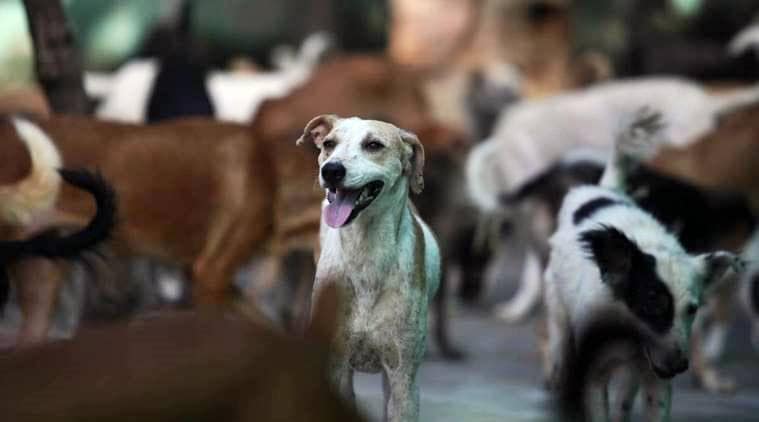 According to the Prevention of Cruelty to Animals Act, abandoning an animal is a punishable offence under Section 11(1) (i) and Section 11(1)(j). (Representational)
According to the Prevention of Cruelty to Animals Act, abandoning an animal is a punishable offence under Section 11(1) (i) and Section 11(1)(j). (Representational)
On March 21, Leo, a 7-month-old Labrador, had no clue that its life was changing when its owner, fearing coronavirus infection, surrendered it at the gates of Make New Life, an orphanage for injured and handicapped animals. “It never could understand why. Even now, whenever a big car passes our gates, it gets alert hoping its family has returned for it,” said Suwarna Pasare, founder at Make New Life.
Over the past few weeks, animal shelters and NGOs across Pune have received numerous inquiries from pet parents about leaving their pet cats and dogs at the shelters, or worse, on the streets. According to the Prevention of Cruelty to Animals Act, abandoning an animal is a punishable offence under Section 11(1) (i) and Section 11(1)(j).
Animal shelters said there is a common misconception caused by rumours and misinformation that pet dogs and cats act as transmitters of coronavirus. “We receive several calls each day from owners asking us whether they will get infected or can we take their pet? We try to counsel them as much as possible. In fact, we also suggest alternatives like keeping their pet at a hostel until the lockdown gets over instead of completely abandoning them. While some comply, some do not and there is nothing much we can do but take the animal in,” said Aditya Makharia, vice president of Karma Foundation. He said that while dogs are being left out on the streets, domesticated cats are also being driven out of their homes.
Highlighting the severity of the pet abandonment, Padmini Stump of Mission Possible said that every other day since the beginning of lockdown, she finds an abandoned animal at her doorstep. “Just the other day I had a cloth bag with a cat and its litter at my gate. Yes in a cloth bag! It was sheer luck that I took them in otherwise they could have wandered off,” she said.
Stump also narrated an incident wherein an 8-month-old Boxer was left outside Society for the Prevention of Cruelty to Animals (SPCA) Pune. “I have seen this dog since it was brought to us for routine vaccines. Later it was infected with ticks and if untreated, it can be a killer. But after two days, the owner stopped coming despite numerous calls. It was not until two people got the dog to us, wished to surrender it, had a change of mind and then finally dumped it near SPCA that we could take it in. The dog’s back is weak and it could not stand up on its own…so it needs utmost care at such times. You see, it is not any ailment, external wounds and lack of food but a broken heart and the sense of not being needed anymore that takes away their lives,” she said.
Makharia also said that while the number of cases of abandonment has increased at an alarming rate, the cases of cruelty and poisoning of animals as well as animal-animal conflict over food and territory have seen a rise post the outbreak. “On Monday, we received five new cases of dogs being poisoned in Viman Nagar. The animals are fed the poison along with food and the occurrences of such incidences are, according to our judgment, late at night and early in the mornings. If notified on time, we have a 50-50 chance depending on what kind of poison was fed. Otherwise, by the time we reach the animal, it has already passed away. In other cases, animals, especially stray dogs, face the brunt of beatings and physical cruelty. We had one such incident in which the dog, despite being beaten and having a noose tied around its neck, wanted to run back to the basti it resides in. That is the blind faith they have on humans,” he said.
“We had a case a few days ago where a dog’s lower jaw was completely shattered due…we had to operate quickly and seek help from doctors…to reconstruct the jaw. It is unfortunate that the animals who cannot even speak up for themselves face worse…” said Stump.
Misinformation creating problems for animal-welfare workers
While animal welfare workers tackle the swelling cases of abandonment, human-animal conflict, animal-animal conflict, lack of food and water, maggot wounds and rabid infections, several volunteers and feeders face the brunt of misinformation among people. “Several villagers harass us and the animals due to misinformation. It has led us to decide to move the shelter once things get settled,” said Pasare.
“Feeders and volunteers who feed strays face a lot of backlash from people. If we do not feed them it might give rise to other issues and people should cooperate…” said Stump.